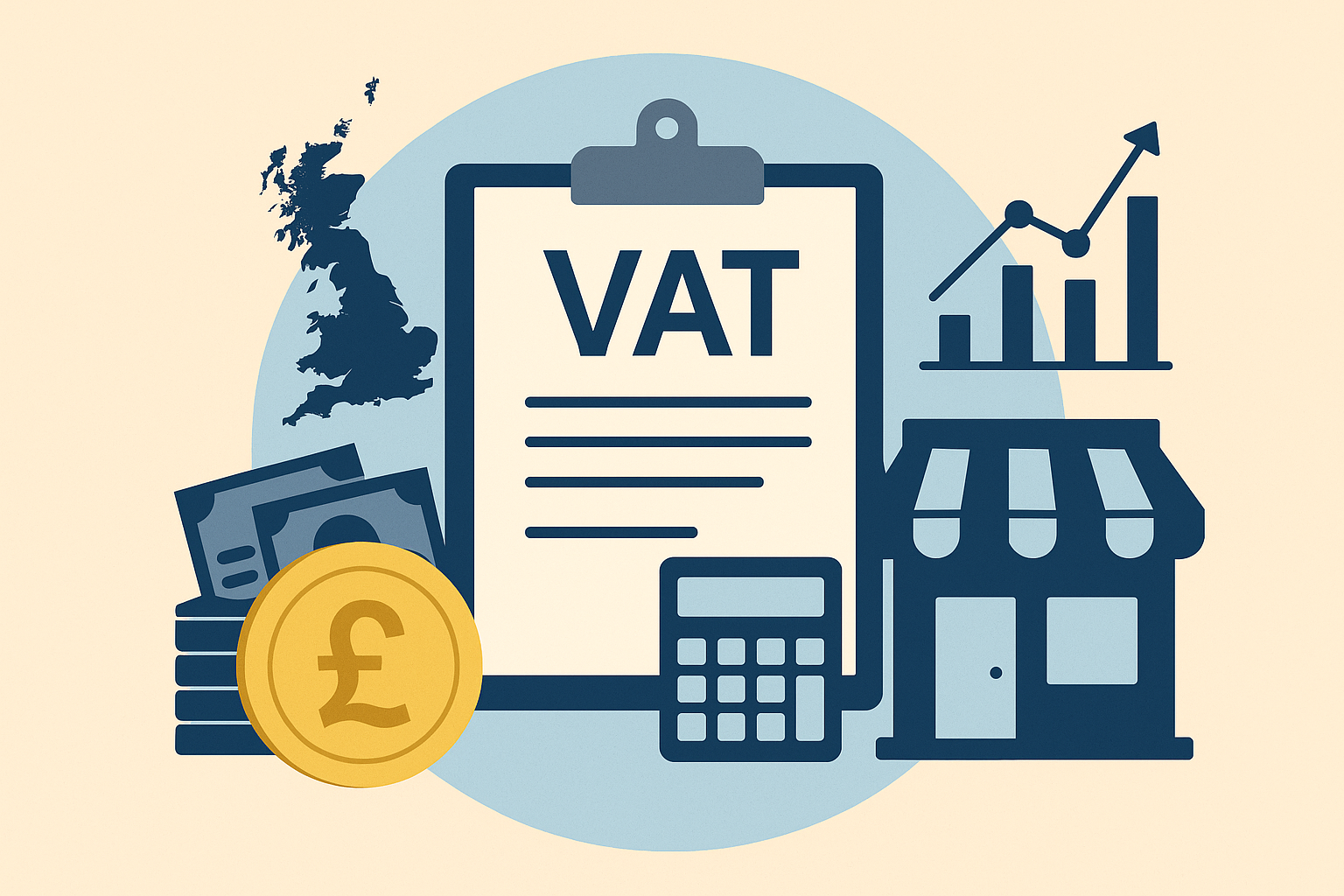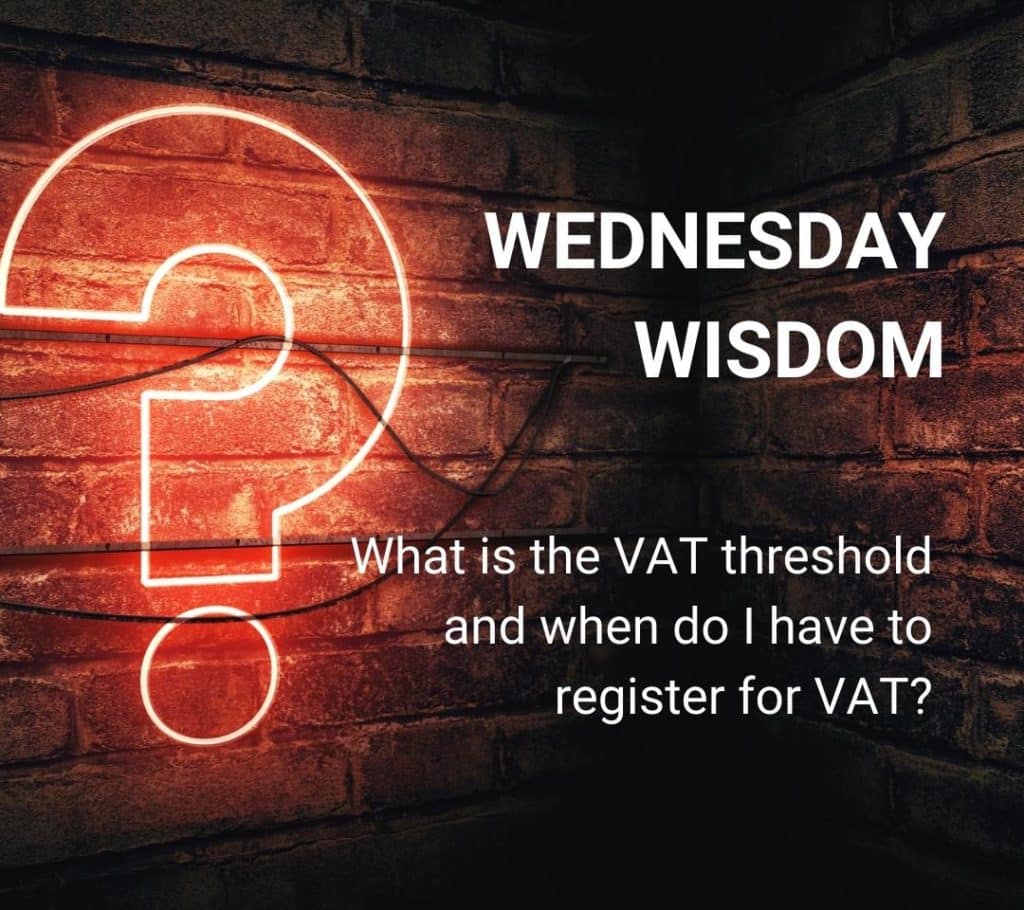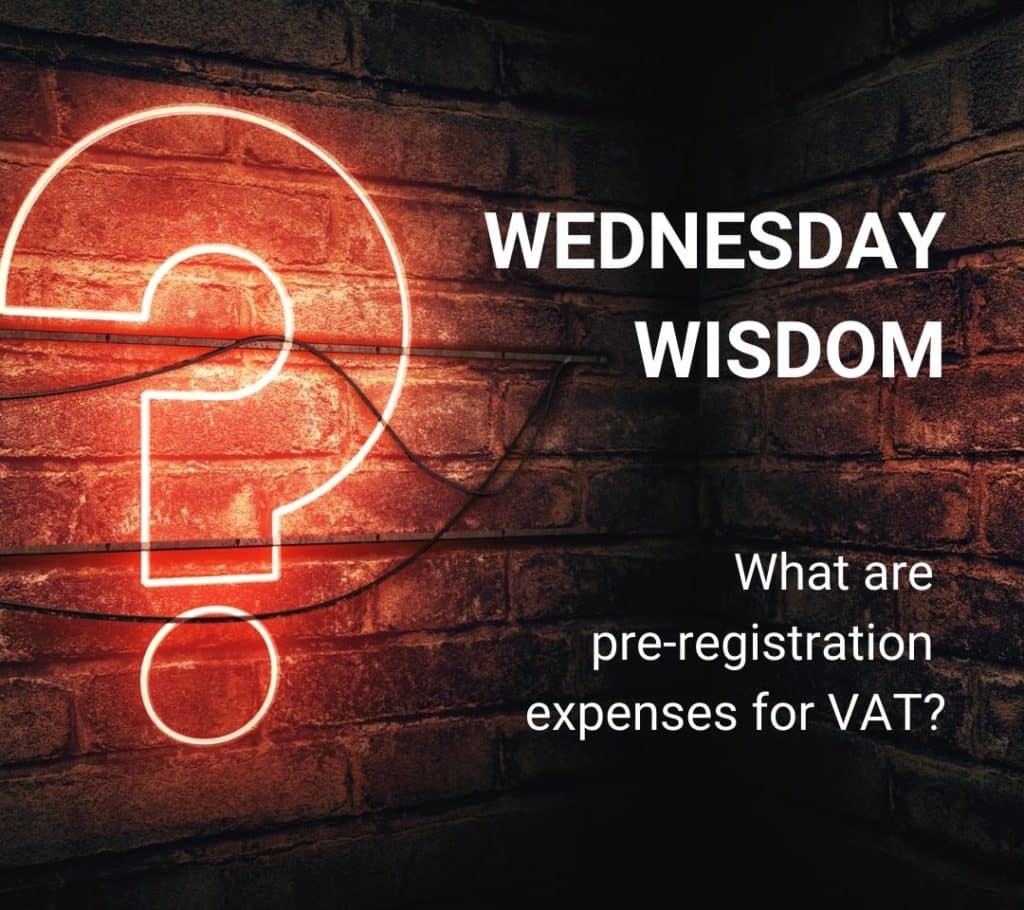If your business is under the VAT threshold, you might be wondering if it’s worth registering anyway.
The truth is, being VAT registered has some strong advantages… but also a few drawbacks you need to weigh up. This post breaks down the key benefits, the risks, and when it actually makes sense to register early.
Creative Takeaways
- Being VAT registered means you can reclaim VAT on business expenses.
- VAT registration boosts credibility and makes your business look established.
- You can access bigger contracts with companies that require VAT-registered suppliers.
- Registration helps you prepare for growth without last-minute stress.
Table of contents
- 1. What is the VAT registration threshold?
- 2. Benefits of being VAT registered
- 3. Disadvantages of being VAT registered
- 4. VAT registration for sole traders and small businesses
- 5. VAT schemes you can use
- 6. How to register for VAT in the UK
- 7. Check your benefits of registering for VAT with WallsMan Creative
1. What is the VAT registration threshold?
In the UK, you must register for VAT if your taxable turnover goes over £90,000 in a 12-month period. This is known as the VAT registration threshold.
If you’re below that level, there’s an option for voluntary VAT registration. Some businesses choose to register early because it helps them reclaim pre VAT expenses or look more credible to clients. Others prefer to wait until they have to, so they can avoid the extra admin.
The key is knowing if you’ll really benefit from registering now, or if it’s better to hold off until you hit the threshold.
2. Benefits of being VAT registered
Registering for VAT can give your business a few practical and financial advantages:
Reclaim VAT on business expenses
If you’re VAT registered, you can claim back VAT paid on eligible purchases:
- equipment
- software
- services.
For example: a freelance graphic designer buying a new MacBook Pro for £2,400 could reclaim around £400 in VAT. That’s a significant saving.
Stronger credibility when being VAT registered
Clients see VAT registration as a sign of a more established business. A small consultancy pitching to larger corporates, for instance, may find they are taken more seriously simply because they include a VAT number on their invoices.
Access to bigger contracts
Many larger companies only work with VAT-registered suppliers. A sole trader web developer could be excluded from agency tenders if not registered… but with a VAT number in place, they meet the compliance requirements to compete.
Flexibility for growth
If your turnover increases suddenly, you won’t need to scramble to register. Take this example: a craft business landing a big retail order can continue trading without interruption if they’ve already registered.
When you’re ready to take the next step and enjoy all the benefits of being VAT registered, but you’re lost in the process, don’t hesitate to reach out to WallsMan Creative! We know the ins and outs of the creative sector, and we offer a FREE, no obligation call to see whether our services fit you.
3. Disadvantages of being VAT registered
VAT registration isn’t always the right move. Here are the main downsides to keep in mind:
Extra admin and paperwork
Once registered, you’ll need to keep accurate VAT records and submit quarterly returns through HMRC. This means more time on bookkeeping or extra accountancy costs.
Quarterly VAT returns
Submitting on time is mandatory. Missing deadlines can lead to an HMRC penalty, which makes compliance another layer of responsibility.
Cash flow pressure
If your clients aren’t VAT registered, they can’t reclaim the VAT you charge them. That can make your prices less competitive, and you’ll still need to pay HMRC on schedule – even if your client payments are delayed.
| Creative Tip Some small business owners might say this: being VAT registered is killing my business. The truth is: for some businesses, the cons of being VAT registered outweigh the benefits, so choosing the right VAT scheme, reclaiming all expenses, and a smart pricing is essential. If neither is working, you can still deregister for VAT. |
4. VAT registration for sole traders and small businesses
For sole traders and small businesses, the decision to register for VAT can feel less straightforward.
- Sole traders: If your clients are mostly other VAT-registered businesses, registering early can work in your favour. You’ll be able to reclaim VAT on your expenses, and your clients won’t mind paying VAT since they can reclaim it too.
- Small businesses below the threshold: If you sell mainly to the public or non-VAT businesses, charging VAT can make your prices look higher than competitors who haven’t registered. In this case, waiting until you have to might make more sense.
- Freelancers and creatives: For service-based businesses, VAT registration can help signal professionalism and prepare you for growth. But it also brings extra admin, so you’ll need to be confident you can handle the record keeping.
5. VAT schemes you can use
When you register, you’ll need to decide which VAT scheme works best for your business.
The main options are:
- Standard VAT scheme: You charge VAT on sales and reclaim VAT on purchases. This gives you the most flexibility, but also requires careful record keeping.
- Flat rate scheme: Designed for smaller businesses with a turnover under £150,000. Instead of reclaiming VAT on each purchase, you pay a fixed percentage of your turnover to HMRC. It’s simpler but can sometimes cost more than the standard method.
- Cash accounting scheme: You only pay VAT to HMRC when your clients pay you, rather than when you issue invoices. This can help smooth out cash flow if late payments are common in your industry.
Choosing the right scheme depends on how your business operates, how much VAT you pay on expenses, and asking yourself the question if simplicity or maximising savings matters more to you.
6. How to register for VAT in the UK
Registering for VAT is straightforward, but you’ll need to get the details right. The (simplified) process looks like this:
- Apply online via HMRC – You’ll need to set up a Government Gateway account if you don’t already have one.
- Receive your VAT number – Once HMRC approves your application, you’ll be sent a VAT registration certificate. This confirms your VAT number and tells you when to start charging VAT.
- Update your invoicing – From that date, you must add VAT to your invoices and keep proper VAT records.
- Submit VAT returns – Returns are usually quarterly, filed online through HMRC’s Making Tax Digital system.
If your turnover later drops below the threshold, you can apply to deregister.
We’ve also created a step-by-step guide on how to register for VAT – check out that dedicated and detailed blog post if you want a full walkthrough.
7. Check your benefits of registering for VAT with WallsMan Creative
Being VAT registered can give your business more credibility, open the door to bigger contracts, and even save you money through reclaiming expenses. But it also comes with more admin and responsibilities, so the timing of when to register matters.
If you’re unsure what’s best for your situation, it helps to talk it through with someone who understands both the numbers and the realities of running a creative business. That’s where WallsMan Creative comes in! We specialise in accountancy for creatives in the UK and can help you decide the right move with confidence.




